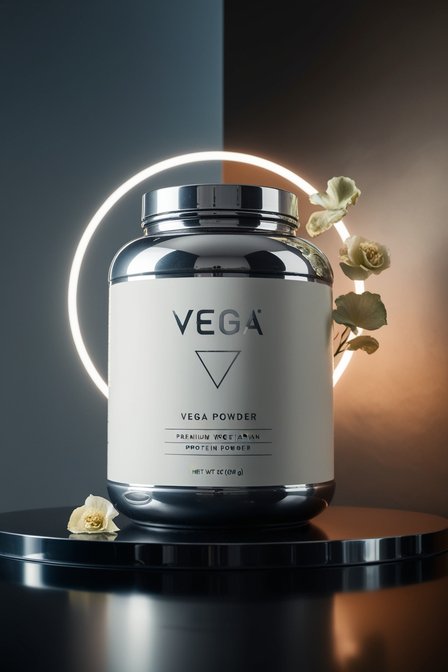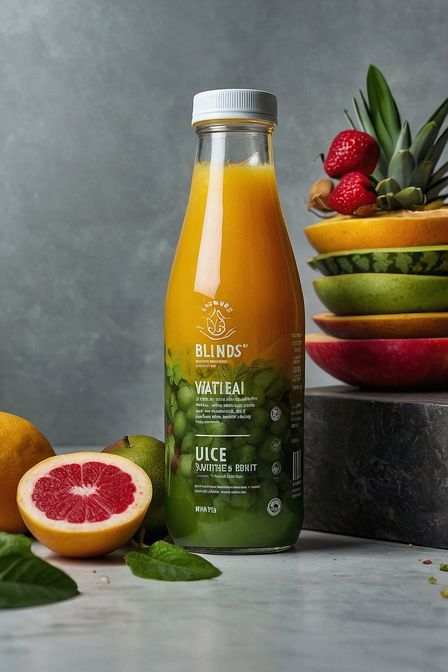Vegan Protein Blend: A Comprehensive Guide
Introduction to Vegan Protein Blends
In recent years, the demand for vegan protein blends has surged, reflecting a broader shift towards plant-based diets and lifestyles. Vegan protein blends are supplements designed to provide the necessary protein intake without relying on animal products. These blends typically combine various plant-based protein sources to create a comprehensive amino acid profile, ensuring that vegans and vegetarians can meet their dietary needs effectively.
The Rise of Plant-Based Nutrition
The rise in popularity of vegan protein blends is part of a larger trend towards plant-based nutrition. Many people are turning to plant-based diets for health, environmental, and ethical reasons. As a result, the market for vegan protein supplements has expanded rapidly, offering consumers a wide range of options to support their dietary goals.
Benefits of Vegan Protein Blends
Vegan protein blends offer several benefits over traditional animal-based protein supplements. Firstly, they are free from cholesterol and saturated fats, making them a heart-healthy choice. Additionally, they are often easier to digest for individuals who are lactose intolerant or have sensitivities to dairy products. Vegan protein blends also provide a rich source of essential nutrients and antioxidants found in plant foods, contributing to overall health and wellness.
Common Ingredients in Vegan Protein Blends
Vegan protein blends are typically composed of multiple plant-based protein sources to ensure a complete amino acid profile. Common ingredients include:
Pea Protein: Derived from yellow peas, pea protein is rich in essential amino acids, particularly lysine, which is often lacking in other plant proteins.
Brown Rice Protein: This protein source is hypoallergenic and easily digestible, providing a good balance of amino acids.
Hemp Protein: Hemp seeds are a complete protein source, containing all nine essential amino acids. They also offer omega-3 and omega-6 fatty acids, promoting heart health.
Quinoa Protein: Quinoa is another complete protein source that is gluten-free and packed with vitamins and minerals.
Chia Seed Protein: Chia seeds provide a high level of protein and are also rich in fiber, antioxidants, and omega-3 fatty acids.
The Importance of Amino Acids
Amino acids are the building blocks of protein, and there are nine essential amino acids that the body cannot produce on its own. These must be obtained through diet. Vegan protein blends are formulated to include these essential amino acids, ensuring that users receive a balanced protein intake. The combination of different plant proteins in these blends helps to achieve a complete amino acid profile, supporting muscle growth, repair, and overall health.
How Vegan Protein Blends are Made
The production of vegan protein blends involves several steps to ensure the final product is pure, effective, and free from contaminants. The process typically includes:
Sourcing: High-quality plant-based ingredients are sourced from trusted suppliers. These ingredients are chosen based on their protein content, amino acid profile, and overall nutritional value.
Processing: The raw plant materials undergo processing to extract the protein. This often involves grinding the plants into a fine powder and using various methods to isolate the protein, such as water extraction or fermentation.
Blending: The isolated proteins from different plant sources are carefully blended to create a balanced and complete protein supplement. This step ensures that the final product contains all essential amino acids in the right proportions.
Flavoring and Sweetening: Natural flavors and sweeteners are added to improve the taste and palatability of the protein blend. Common natural sweeteners include stevia and monk fruit extract.
Packaging: The finished product is packaged in airtight containers to preserve freshness and prevent contamination. Packaging often includes detailed nutritional information and usage instructions.
Comparing Vegan Protein Blends to Animal-Based Proteins
When comparing vegan protein blends to animal-based proteins, several factors come into play.
Digestibility: Many people find plant-based proteins easier to digest than animal proteins, particularly those with lactose intolerance or dairy sensitivities.
Nutrient Density: Vegan protein blends often contain additional nutrients, such as fiber, vitamins, and minerals, which are naturally present in plant foods.
Ethical and Environmental Considerations: Choosing vegan protein supports ethical considerations related to animal welfare and reduces environmental impact. Plant-based proteins generally require fewer resources and produce lower greenhouse gas emissions compared to animal agriculture.
Taste and Texture: Advances in food technology have significantly improved the taste and texture of vegan protein blends. While some may still find plant-based proteins to have a different mouthfeel compared to whey or casein proteins, many brands have developed formulations that are smooth and enjoyable.
Incorporating Vegan Protein Blends into Your Diet
Vegan protein blends can be easily incorporated into a variety of meals and snacks. They can be added to smoothies, oatmeal, and baked goods, or simply mixed with water or plant-based milk for a quick protein shake. Here are some tips for integrating vegan protein blends into your daily routine:
Morning Smoothies: Start your day with a protein-packed smoothie by blending your favorite fruits, vegetables, and a scoop of vegan protein powder. This provides a nutritious and satisfying breakfast option.
Post-Workout Shakes: After a workout, replenish your muscles with a protein shake made from a vegan protein blend. This helps to support muscle recovery and growth.
Baking: Vegan protein powders can be used in baking to increase the protein content of muffins, pancakes, and energy bars. This is a great way to enjoy your favorite treats while boosting their nutritional value.
Soups and Stews: For a savory option, try adding unflavored vegan protein powder to soups and stews. This enhances the protein content without altering the taste.
Addressing Common Concerns About Vegan Protein Blends
Despite their benefits, some people have concerns about vegan protein blends. Common issues include:
Taste and Texture: Some individuals may find the taste and texture of plant-based proteins to be different from animal-based proteins. To address this, many brands offer flavored options and have improved the texture through advanced processing techniques.
Allergies: Those with allergies to specific plants, such as soy or nuts, should carefully read ingredient labels to avoid adverse reactions. Many vegan protein blends are formulated to be hypoallergenic and free from common allergens.
Digestive Issues: While plant-based proteins are generally easier to digest, some people may experience digestive discomfort when first introducing them into their diet. Gradually increasing the intake and choosing blends with added digestive enzymes can help mitigate this.
Protein Content: Some may question whether vegan protein blends provide enough protein to meet their needs. However, with proper formulation, vegan protein blends can offer comparable protein content to animal-based supplements. It is essential to check the nutritional label to ensure adequate protein intake.
Future Trends in Vegan Protein Blends
The future of vegan protein blends looks promising, with ongoing research and innovation driving the development of new products. Some emerging trends include:
Sustainable Sourcing: There is a growing focus on sourcing ingredients sustainably to reduce environmental impact. This includes using regenerative agriculture practices and choosing plant proteins that require fewer resources to produce.
Functional Ingredients: Future vegan protein blends may include functional ingredients such as adaptogens, probiotics, and superfoods to enhance their health benefits further.
Personalized Nutrition: Advances in technology are enabling the creation of personalized nutrition plans that cater to individual dietary needs and preferences. This trend is likely to extend to vegan protein blends, offering customized formulations based on genetic, lifestyle, and health data.
Enhanced Flavor and Texture: Continued improvements in flavor and texture are expected, making vegan protein blends even more appealing to a broader audience.
Conclusion
Vegan protein blends are a versatile and healthful option for those seeking to boost their protein intake while adhering to a plant-based diet. With a wide range of ingredients and flavors available, these blends can cater to various dietary needs and preferences. As the market continues to grow, consumers can look forward to even more innovative and sustainable options, making it easier than ever to support their health and wellness goals with plant-based nutrition.



